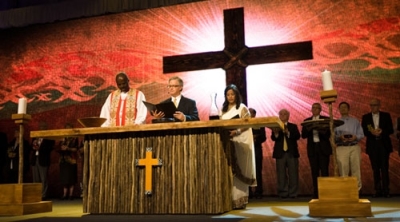
The Supreme Court has broadened the
rights of parents and students to use government subsidies to attend
religious schools, striking down a Maine program that barred the use of
local government funds to pay tuition at primary and high schools
providing religious instruction.
Ruling 6-3 Tuesday, the high court
said prohibiting parents from using such subsidies for schools engaging
in religious teaching violated the religious freedom rights of students
and their parents.
Chief Justice John Roberts wrote for the majority
in the case, which split the court cleanly along ideological lines.
Roberts said the state’s interest in avoiding concerns about
establishment of religion did not justify the policy that effectively
blocked parents directing funding to religious schools.
“A
neutral benefit program in which public funds flow to religious
organizations through the independent choices of private benefit
recipients does not offend the Establishment Clause,” Roberts wrote. “A
State’s antiestablishment interest does not justify enactments that
exclude some members of the community from an otherwise generally
available public benefit because of their religious exercise.”
Under
the Maine “tuitioning” program the court struck down on Tuesday, local
governments lacking the population to run schools at a certain grade
level typically pay for students to be educated at public or private
schools of their choice. But, to avoid government funds being used for
religious purposes, since 1981 the program has refused to pay for
schools providing religious education.
In
a 2020 decision on an educational aid program out of Montana, the
Supreme Court ruled 5-4 that states could not exclude families or
schools from student aid programs simply because the schools were backed
by religious institutions.
However,
that decision left open the question of whether states could block the
use of their funds for explicitly religious or “sectarian” classes.
But
in the case decided Tuesday, Roberts explicitly rejected Maine’
arguments that it was only targeting religious teaching and not whether a
school was run by a religious group.
“Any
attempt to give effect to such a distinction by scrutinizing whether
and how a religious school pursues its educational mission would also
raise serious concerns about state entanglement with religion and
denominational favoritism,” the chief justice wrote.
About The Author










Comments